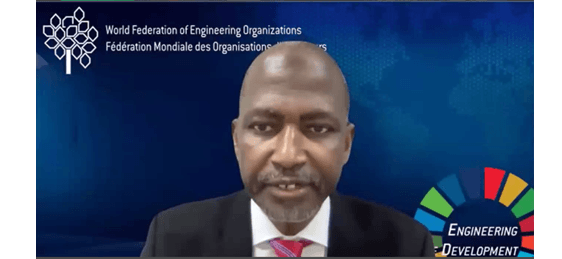The President of the World Federation of Engineering Organizations (WFEO), Engr. Mustafa Balarabe Shehu, has urged Nigeria to prioritize engineering, local innovation, and the use of indigenous languages in education as key drivers of nation-building.
Engr. Shehu, the first WFEO president from Sub-Saharan Africa, made the call during his interviews with ENGAUSA podcast over the week.
ClockwiseReports reports that after spending 13 years in civil service, Engr. Shehu took a bold step by resigning to establish his own engineering firm, a decision that laid the foundation for his rise to global recognition.
He noted that while the private sector poses challenges, such as securing contracts and finding competent staff, those hurdles strengthened his philosophy of building sustainable systems.
Read Also: BUK welcomes over 200 transfer students from Sudan to strengthen its global reach
“When you want to build sustainable companies, you have to think beyond yourself. You have to build systems and structures that ensure continuity even when you are not there, and you have to surround yourself with like minds,” he said.
Shehu also emphasized the importance of language in education, particularly highlighting the ENGAUSA model of teaching science and technology in mother tongues.
“If you go to advanced and developed countries, that is what they do. They teach in their language, and that is why you find that children understand what is being taught to them faster. We need to rid ourselves of this colonial mentality that makes us treat our language as inferior,” he stated.
The WFEO president underscored engineering’s central role in national growth, warning that without deliberate investment in local manufacturing and innovation, Nigeria risks stagnation. He cited China as an example, noting that a single company in the country operates 11 research institutes and employs 120,000 engineers—more than the total number of engineers in Nigeria.
“To grow as a country, Nigeria must prioritize engineering and create solutions from within at an industrial scale,” he stressed.

